I feel sorry for Kaitlyn Hunt, the Florida high-school senior who was arrested February 16, charged with sexual battery of a minor and later expelled from her school for having a sexual relationship with a younger girl.
Kaitlyn Hunt, a senior, is 18. The other girl, a freshman at their high school, just turned 15. The two first became involved when Kaitlyn was 17.
I feel sorry for Kaitlyn Hunt because as a high-school junior, I was Kaitlyn Hunt: expelled from my all-girls high school after my girlfriend’s mother listened in on a phone conversation, then later searched her daughter’s room and found what would later be called "incriminating” lesbian and gay newspapers and books, as well as letters from me.
My girlfriend’s parents called the school and told the principal that I had lured their daughter into a sexual relationship against her will. My parents were called in and they were told I would be expelled to "protect" the other girls at the school from me. That I was a "bad moral influence” on the other girls and could not be trusted around them. I would be a "dangerous and disruptive influence" on the "character of the school and its student body," the principal said.
My girlfriend’s parents intended to press charges–I was 16, she was fifteen and a half–but their parish priest convinced them not to, saying the ensuing scandal would follow the entire family.
The high school I attended was academically prestigious and one of the best in the country. It was also a family tradition: my grandmother and mother had attended and my younger sister would be going the following year.
My expulsion was devastating. It was late fall, which meant finding another school would be difficult. And it was: the reason I was expelled was in my record. No other school wanted to take the risk. I ended up at a high school for problem kids–kids with drug and alcohol addictions, kids who’d been arrested, kids with serious emotional issues, kids who had been kicked out of every other school and had nowhere else to go.
Instead of graduating from the best school in the city, I graduated from the school where no one wanted to end up, the school whose name was synonymous with trouble.
This is what has happened to Kaitlyn Hunt. Her high school kicked her out–even after a judge said she could stay–because the parents of the other girl petitioned the school board. Kaitlyn ended up at another school, a pariah. She’ll be allowed to walk at graduation with her original classmates, but it won’t be the same.
Kaitlyn also won’t be able to just move on to nursing school as she had planned after graduation. Because Kaitlyn is still facing criminal charges.
According to a May 20, blog post on xoJane.com written by Steven Hunt Jr., Kate Hunt’s father, his daughter was first arrested by police on Feb. 16, and charged with sexual battery on a minor 12-16 years old. At the time of the arrest, Stephen Hunt says the police refused to tell him or Kaitlyn’s mother why she was being arrested. She was handcuffed and taken away, screaming and crying for her mother, he said.
Police arrested her based on details from a phone conversation that was taped between the girlfriend and Kaitlyn where the two discussed their relationship.
Steven Hunt says that this taped call was precipitated by his daughter’s girlfriend’s parents discovering the relationship between the teens. The parents called police and had his daughter arrested without contacting them or their daughter to discuss the situation or what their concerns might be.
The charges were later reduced to two counts of felony lewd and lascivious battery on a child 12-16. But the charges are still felonious and a sex crime.
A plea deal would offer Kaitlyn Hunt two years house arrest and a year’s probation. Otherwise, according to Florida law, she could be sentenced to up to 15 years in prison and have to register as a sex offender for life.
According to Steven Hunt, both the prosecutor and the girl’s parents refuse to drop the charges.
Kate Hunt’s mother, Kelley Hunt Smith, brought the case to the media last week. She started a Facebook campaign to tell her daughter’s story and to urge the Assistant State’s Attorney, Brian Workman, to drop the case.
Since Kaitlyn’s mother made her daughter’s case public last week, LGBT blog sites have reported the story and on May 19, the NY Daily News published an interview with Kelley Hunt Smith.
Change.org has put up a petition urging prosecutors to "stop the hate" and rescind the prosecution. On May 18, the international hacker group Anonymous started a Twitter campaign about the case with #OPJustice4Kaitlyn and a letter that began "Greetings, Bigots."
The Anonymous group has recently come out strongly in defense of justice for rape victims, particularly in a series of gang rapes of teenaged girls, like the Steubenville case. (See Op-Ed: Gender Crime is Hate Crime and also Op-Ed: The Social Medium of Rape) Anonymous has stated that Kaitlyn Hunt is being wrongly prosecuted because of "selective enforcement" of laws and because she was in a same-sex relationship. They are calling for the resignations of those prosecuting Kaitlyn.
Every state in the U.S. has statutory rape laws. These are usually in two categories–first degree rape and second or third degree rape. First degree involves a perpetrator 18 or older and a victim 12 or under. Second or third degree is applied to perpetrators 17 and older and victims 12 to 16. It is also illegal in every state in the country for someone to have sex with a minor between the ages of 12 and 16 if that person is three or more years older than the minor.
Kaitlyn Hunt, a senior, and her 15-year-old freshman girlfriend have a three-year age difference between them, and the girlfriend is in that 12-16 range, having just turned 15. (Kaitlyn turned 18 in September 2012.) This specific age difference means their relationship doesn’t just violate the law in Florida, it violates the law in every state in the country.
Statutory rape laws relate to both the age of consent in individual states and the age of both parties. Anonymous is correct that these laws are applied selectively in that secondary instance which almost always involves older teenaged boys and younger teenaged girls, but sometimes older teen girls and younger teen boys.
Prosecution is almost wholly among heterosexuals and almost entirely of teenaged boys. The case of Kaitlyn Hunt is unusual because both she and her alleged victim are female.
Yet the case of Kaitlyn Hunt and her unnamed girlfriend was actually always illegal by the exact letter of Florida law because the girlfriend was 15 and the age of consent in Florida is 18. Florida law expressly stipulates that sex with anyone under the age of 16 is illegal, regardless of sexual orientation.
But once Kaitlyn turned 18, she was legally a consenting adult.
Which made her a rapist under the law.
All over America teenagers with age differences similar to Kaitlyn’s and her girlfriend are having consensual sexual relationships. Yet in many, if not most instances, those relationships violate existing laws enacted to protect children and adolescents from predatory adults.
For decades, parents unhappy with a daughter’s choice of older teen boyfriend have used these laws to either threaten the boyfriend with arrest or actually have him arrested. According to crime statistics on statutory rape, the most common age for prosecution is 19.
Enforcement of statutory rape laws has been haphazard over the years, but some groups like the prestigious Guttmacher Institute as well as some women’s groups have pressed for stronger enforcement because statistically, the highest rates of teen pregnancy are among girls with boyfriends who are older. The Progressive Policy Institute and the American Bar Association even co-sponsored a study a decade ago on enforcement of statutory rape laws.
In the late 90s, California led an effort at prosecuting statutory rape because the state had the highest teen pregnancy rate in the nation and demographics revealed that among the more than 50,000 pregnancies of high school students, the fathers were on average four years older than their teen partners. Teen pregnancies were costing the state millions in welfare-related services so programs were initiated to use the statutory rape laws as a deterrent.
Other states–Delaware and Georgia immediately, others soon after that–followed suit.
Statutory rape charges are very serious, and because of concomitant laws enacted in recent years related to sex crimes, people charged with sex crimes must register as sex offenders for the rest of their lives. Being a registered sex offender means there are also what the law calls "onerous" restrictions on certain behaviors and also on where one can live and work.
All of which means the case against Kaitlyn Hunt is quite serious.
But it is only one case. When statutory rape laws are being prosecuted all across the U.S. without media notice, why is the case of Kaitlyn Hunt garnering national attention? Is there a double-standard at play?
Every news piece about Kaitlyn Hunt has been accompanied by photographs–many photographs. Hunt is a pretty blonde with big light eyes and a ready smile. Photos of her in her prom dress, in cute tops and shorts, lying on her stomach in a little sundress with her legs up behind her, even one in the midst of a cheer in her cheerleader’s outfit present a teen who is attractive and charismatic.
A former cheerleader and member of her school’s chorus, in her high school yearbook Kaitlyn was voted the student with "Most School Spirit." By her parents’ accounts she was a teenager with no problems who was never in trouble.
The plethora of photos tell a specific story about Kaitlyn Hunt: she doesn’t look like what majority America thinks lesbians look like. Rather, she looks like the proverbial girl-next-door from small-town America, which is exactly what she is.
Even her own parents seem not to believe she is actually a lesbian. In her Facebook posting, Hunt Smith says the other girl’s parents have blown the relationship out of proportion and think Kaitlyn "made" their daughter a lesbian.
Hunt Smith wrote, "Of course I see it 100 percent different. I don’t see or label these girls as gay. They are teenagers in high school experimenting with their sexuality. All teens do it in one form or another. And even if their daughter is gay, who cares? She is still their daughter."
The immediate response from the LGBT community about Kaitlyn Hunt is to support her. But what disturbs this reporter is that there has been absolutely no comment from the other side in the case. No one has spoken to the other parents–including the NY Daily News. No one has spoken to the attorneys in the case and no one has spoken to either teen. The entirety of the story is being told by Kaitlyn’s parents.
Stephen Hunt has set up a "go fund me" site to sell "stop the hate, save Kate" merchandise and raise $50,000 for legal fees. He’s collected over $9,000 so far.
All of which raises this question: If this were an 18-year-old boy and a girl who had just turned 15, would we see the boy as a victim or a predator? Would the NY Daily News interview his mother? Would a feminist blog site give his father space for a column? Would Change.org be petitioning? Would Anonymous be staging a protest?
Or would there be concerns that an "older boy" was "victimizing" a younger girl? How much of the attention to this case is because teenaged female-female sexuality simply isn’t seen as threatening, especially when the teenager involved is pretty and "girly" and there is no risk of pregnancy?
If Kaitlyn were a short-haired, stocky, unisexually dressed baby butch with myriad tats and ear plugs, would there be six photos accompanying a story in the nation’s largest daily tabloid newspaper? Or none?
I’m not saying that Kaitlyn Hunt doesn’t deserve support. Or that the other girl’s parents aren’t entirely suspect from their actions in calling the police.
I know too well the pain Kaitlyn is experiencing, because I lived it: I remember with total clarity the days, weeks and months after I was expelled from school. I remember having to sneak out of my house and go to school as classes let out, hoping to catch my girlfriend before her mother, who was keeping her to a restrictive schedule, came to pick her up from school and before any teachers might see me. I remember how suddenly I had gone from being very popular to having no friends. I remember how my girlfriend and I eventually broke up because it was just too hard to sneak around and see each other and one of us was always crying. I remember what it was like to be out of school when everyone else was in. And most of all, I remember how difficult it was to get past what this all had done to me–to my family, to my academic life, to my future.
So I feel sorry for Kaitlyn Hunt, because I was her, and I know what it’s like to go from "Most School Spirit" to no school at all, to be blindsided by someone else’s parents, to have so many people sit in judgement of you.
I don’t want to judge Kaitlyn Hunt. Rather I want to question the system that criminalizes peer relationships between teens. Maybe the days of statutory rape laws for 14 to 18 year olds should be abolished. Maybe some teenagers just naturally gravitate toward kids a little older than themselves. Maybe the double standard of boys are predators and girls are just girls is inaccurate and maybe some girls are predators and most boys aren’t. The sexual double standard here isn’t just queer versus straight, it’s also male versus female.
I signed the petition to stop Kaitlyn Hunt’s prosecution because I think if she had truly been a predator, someone else would have come forward to say so by now–a previous girlfriend, other students, someone.
I hope the prosecution of Kaitlyn Hunt is stopped. It took me years to recover from what my girlfriend’s parents, my high school and even my own parents did to me. But I also hope the attention this case has garnered makes people question whether statutory rape laws were enacted to criminalize peer relationships between high school students, irrespective of gender or sexual orientation, or to catch adult sexual predators who prey on children and teens.
Check out the Change.org petition to save Kaitlyn Hunt here.
@VABVOX
Victoria A. Brownworth is a Pulitzer Prize-nominated journalist and the author/editor of more than 30 books including the award-winning Too Queer: Essays from a Radical Life and Coming Out of Cancer: Writings from the Lesbian Cancer Epidemic.

















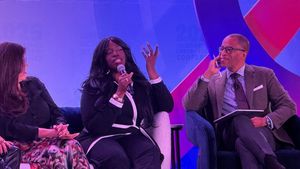



























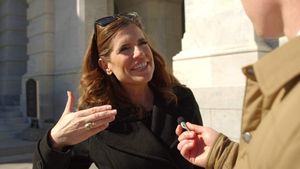
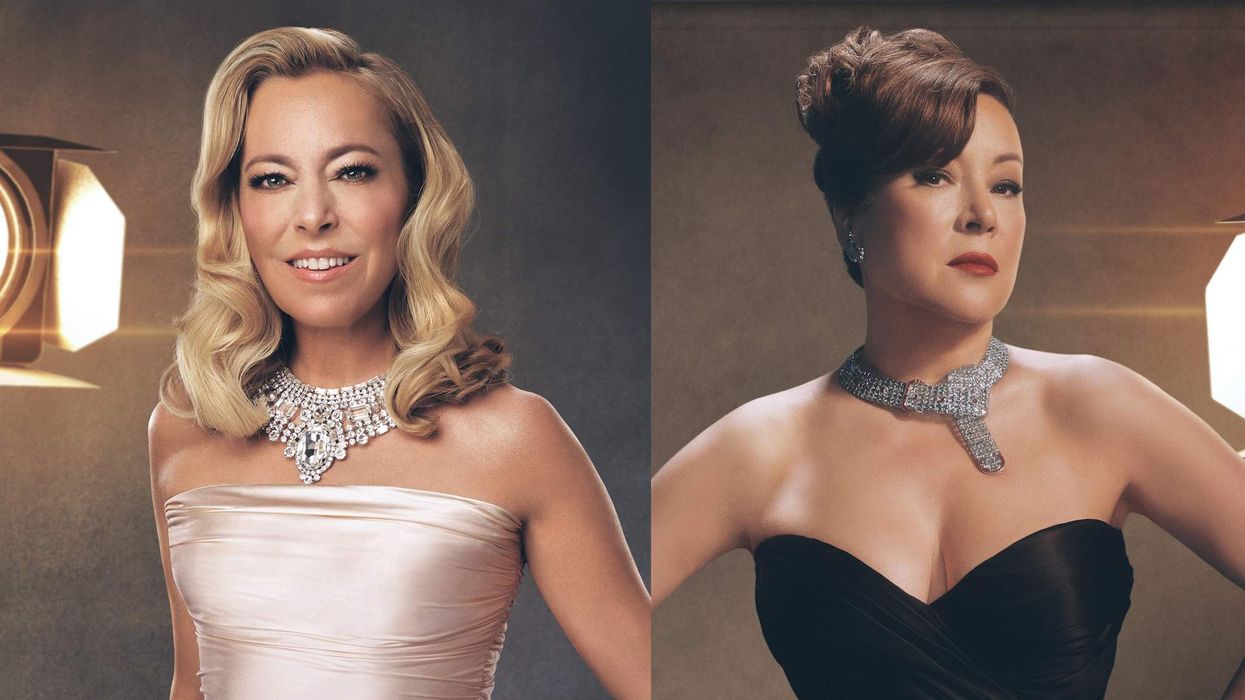
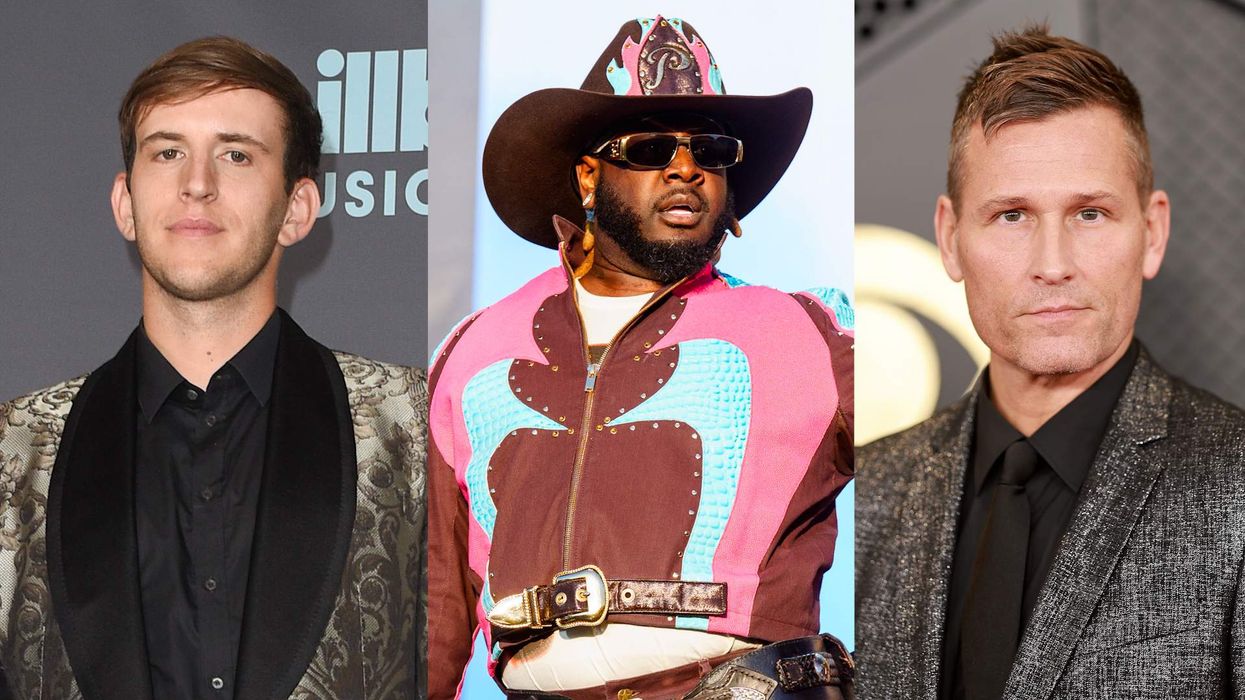

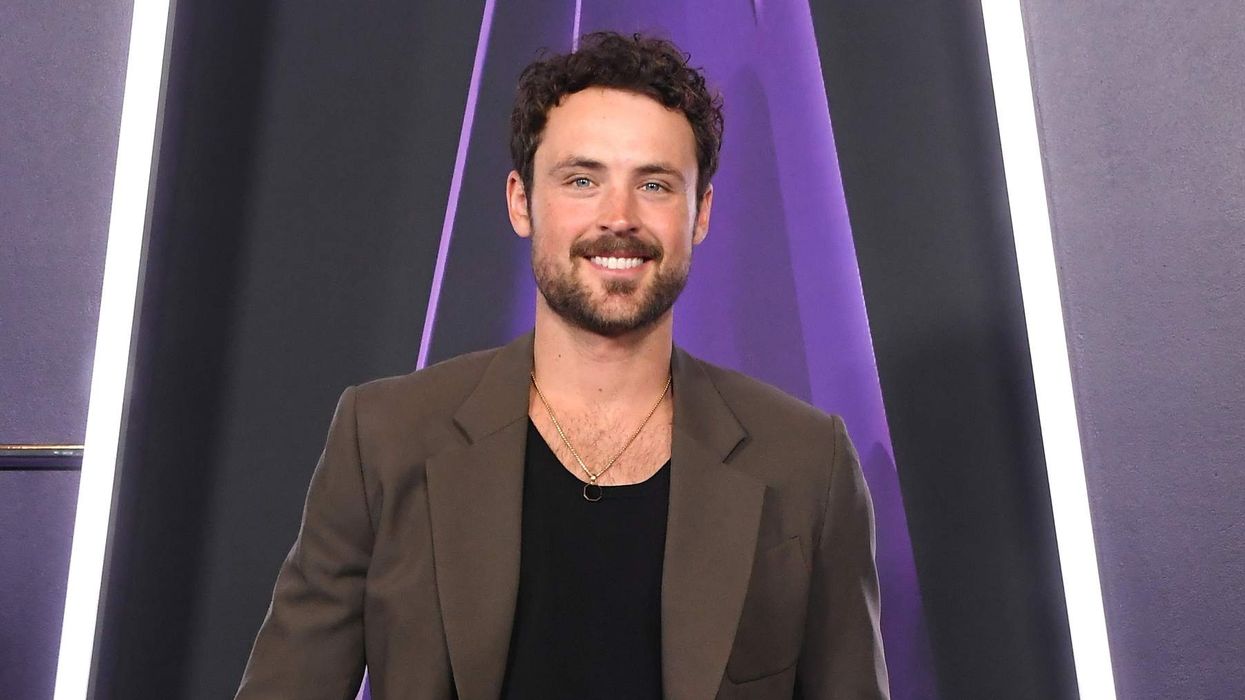

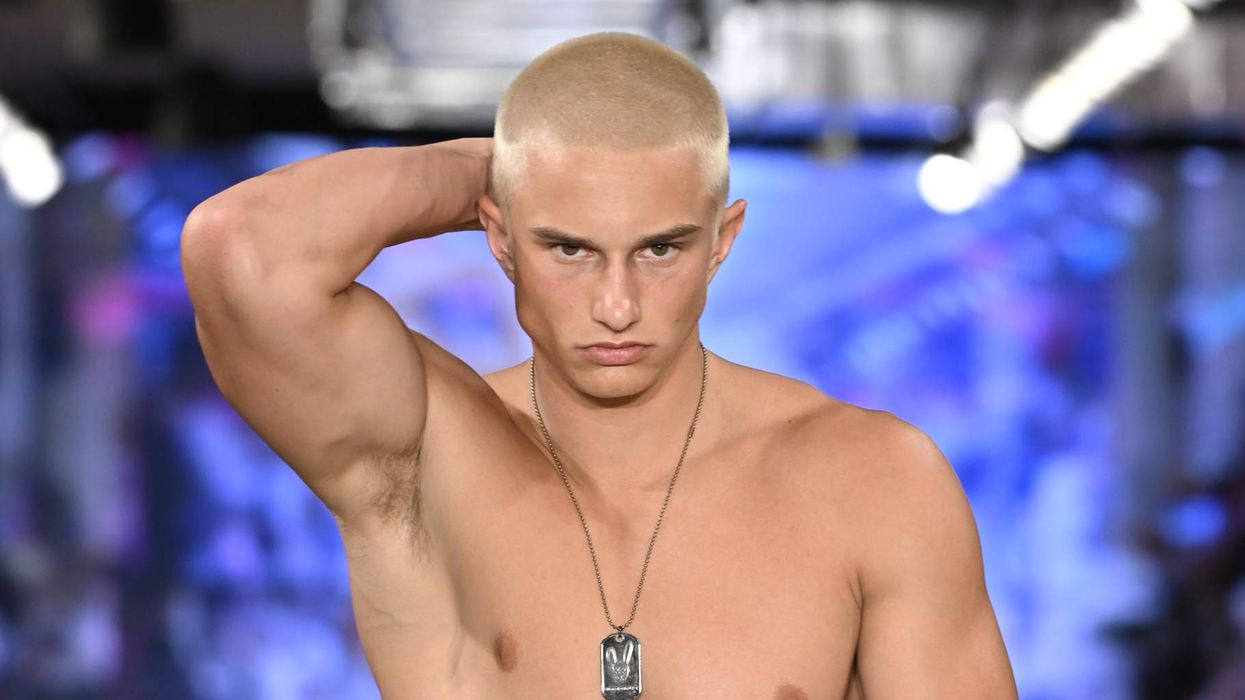

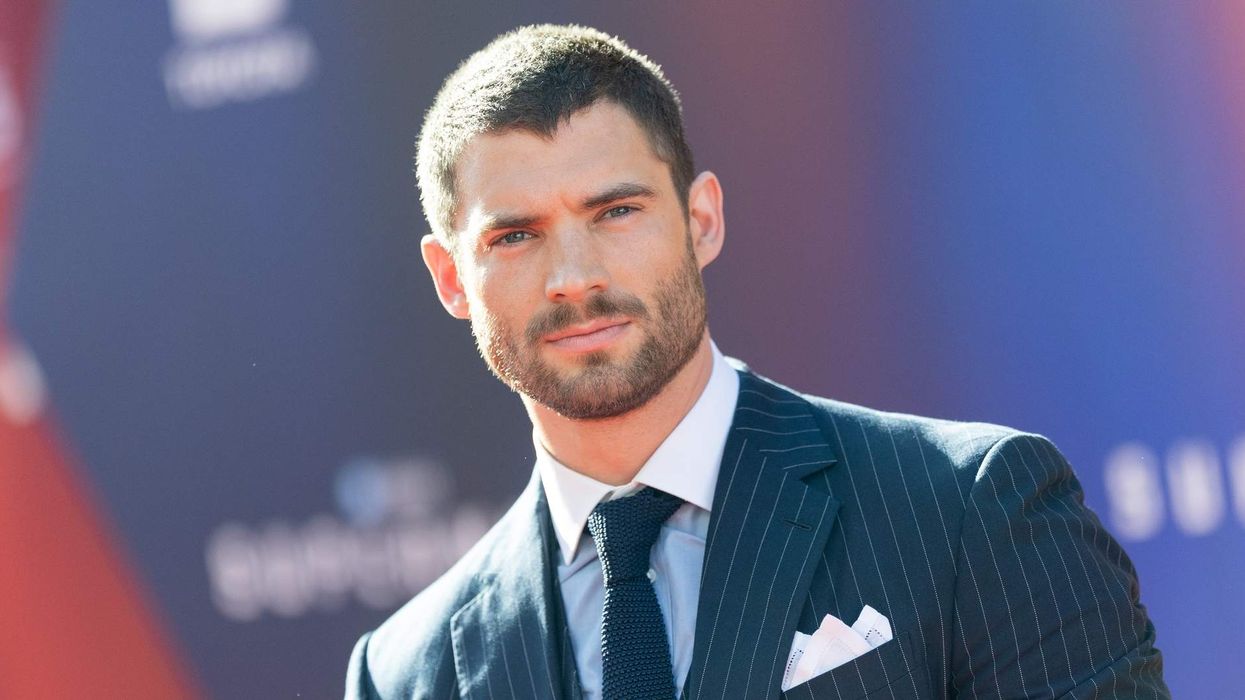

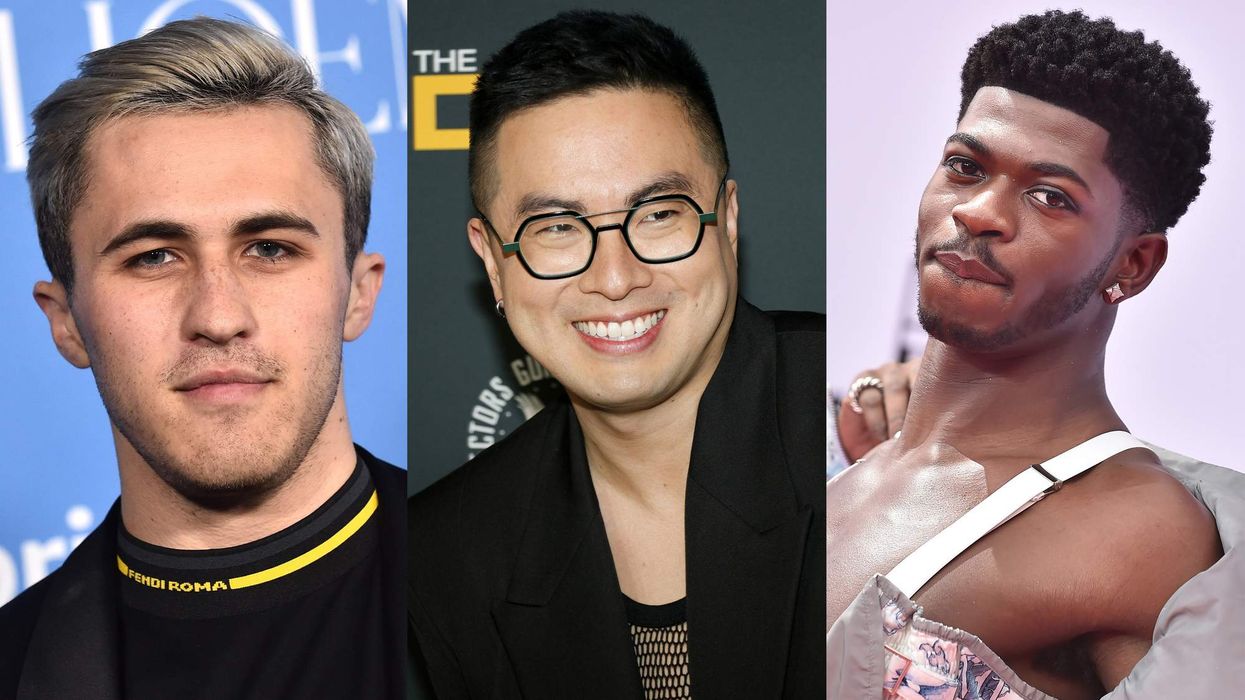































 Cindy Ord/Getty Images
Cindy Ord/Getty Images























